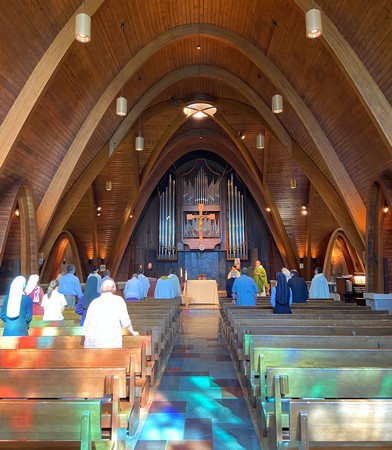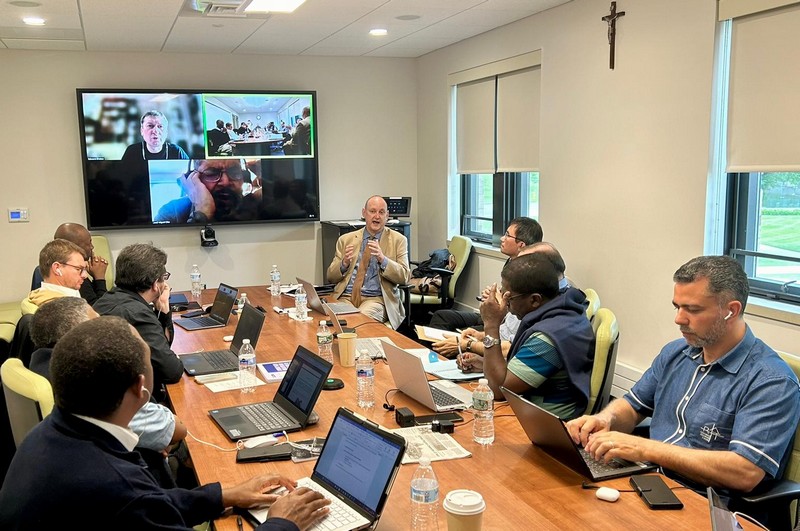New foundations and mission
The day’s agenda included reflection on the criteria for foundation in a new country, the approval of formators, and first apostolic appointments. An exchange with the President of Assumption University followed.
The General Chapter’s recommendations concerning foundations in new countries led the PGC to re-examine the criteria and approach to be adopted for the study and establishment of a new foundation in a country where we are not yet present. This question of the missionary expansion of our religious family implies a substantial commitment in terms of human and material resources. In this respect, the PGC believes that, in the near future, we should first consolidate our presence in the new entities, so as to be able to use them as departure points for other countries.
Since our various missions need apostles, the first apostolic appointments are a tool that the Congregation is using to encourage missionary vocations in young people. Instituted since the 32nd General Chapter of 2011, there is no longer any question about the relevance of the practice of first apostolic appointments. It does, however, merit regular evaluation by the PGC, with a view to making any necessary improvements in its implementation to maximize its apostolic results.
Before receiving Mr. Greg Weiner, President of Assumption University in Worcester, the PGC went through the usual exercise of accrediting new Provincial and local formators, details of which will be communicated through the Congregation’s official bulletin.
For his part, the President of Assumption University was received by the PGC for an exchange on our educational mission within this mobilizing work. He pointed out that our university is one of the very few institutions that offer society a Catholic liberal education (in the sense of the “humanities”); most institutions are committed to study that prepares young people exclusively for professional careers. The teaching offered at Assumption University is designed to encourage students to be open to the essential questions facing society, in the light of reason and Christian faith. This calls for a greater visibility of Assumptionists in daily campus life and in the classroom, which could also enable students to open up internationally through encounters with religious from other parts of the world. The President closed the exchange by asking that the AA’s relationship with the university go beyond that of a simple partnership.
P. Thierry KAHONGYA

